This will be a two-week project in Nairobi, Kenya, organized by RAD-AID International, a non-profit organization dedicated to providing radiology services around the world. I will be joining a team of Interventional Radiology (IR) attending physicians, technologists, nurses, and resident physicians from Thomas Jefferson University Hospital (TJUH) in supporting and collaborating with physicians in the Department of Diagnostic Imaging and Radiation Medicine at Kenyatta National Hospital, the teaching hospital of the University of Nairobi (UoN). We will obtain temporary medical licenses to be able to provide clinical support in the care for their patients; additionally, our time will be spent in education both with and for the trainees in their Fellowship program.
The two-year long IR Fellowship in Nairobi is relatively nascent, with their first class of fellows enrolled only in 2020. As such, there is significant desire for support and education in the continued development of this program. We plan to provide clinical support in addition to education such as didactics and case presentations. As importantly, the scope of practice and patient population in Kenyatta National Hospital differ significantly from that of our experience in Philadelphia, PA, and the educational value and potential for growth are equally mutual. Our team’s role in Nairobi is to support and learn from existing practices in the region, not to distract or exploit their time or resources. The goal of the project is to build upon prior experiences of collaboration and to support the growth and development of self-sustained IR in Kenya.
Ultimately, the primary focus of this collaboration is the care of the patients at UoN. The patient population in Kenya, and more broadly of East Africa, suffer due to the scarcity of IR staff and resources. Only four years after its inception, the IR fellowship of UoN has produced four fellows who continue to practice in Kenya. Despite this, there remains a critical shortage of IR services in Kenya. The minimally-invasive nature of IR procedures is critical to providing needed services to a large and otherwise underserved population. By continuously providing support during our trips, we can help grow those numbers and ultimately benefit the larger East African patient population.
No less important are the fellows and IR team at the University of Nairobi. This trip would build upon a several years-long relationship between UoN and TJUH. Physicians from TJUH, with the assistance of RAD-AID International and prior Doximity grant funding, were able to help establish the IR Fellowship in 2020. This trip represents another chapter in a developing story of mutual collaboration and benefit.
Finally, we stand to benefit from this collaboration. The premise and promise of IR is to remain flexible in the practice of minimally-invasive, image-guided procedures, which is not possible if a practice becomes complacent. By working with and learning from the staff at UoN, we also stand to benefit immensely from their experience and wisdom of practicing in a very different setting than our own.
The goal of this trip is to continue a years-long effort to support the growth and expansion of IR services in Kenya and East Africa. The focus of this trip is not on us as IR physicians or trainees, but on the people of Nairobi and the physicians who care for them. The results have already been visible—we routinely receive visitors from Nairobi for observerships. Additionally, we publish research together, most recently in the Seminars of Interventional Radiology. Patients have already benefited from the growth of IR services in Kenya and the surrounding area. The practice of IR in Nairobi is self-sustaining but can still benefit from the support that we can offer.
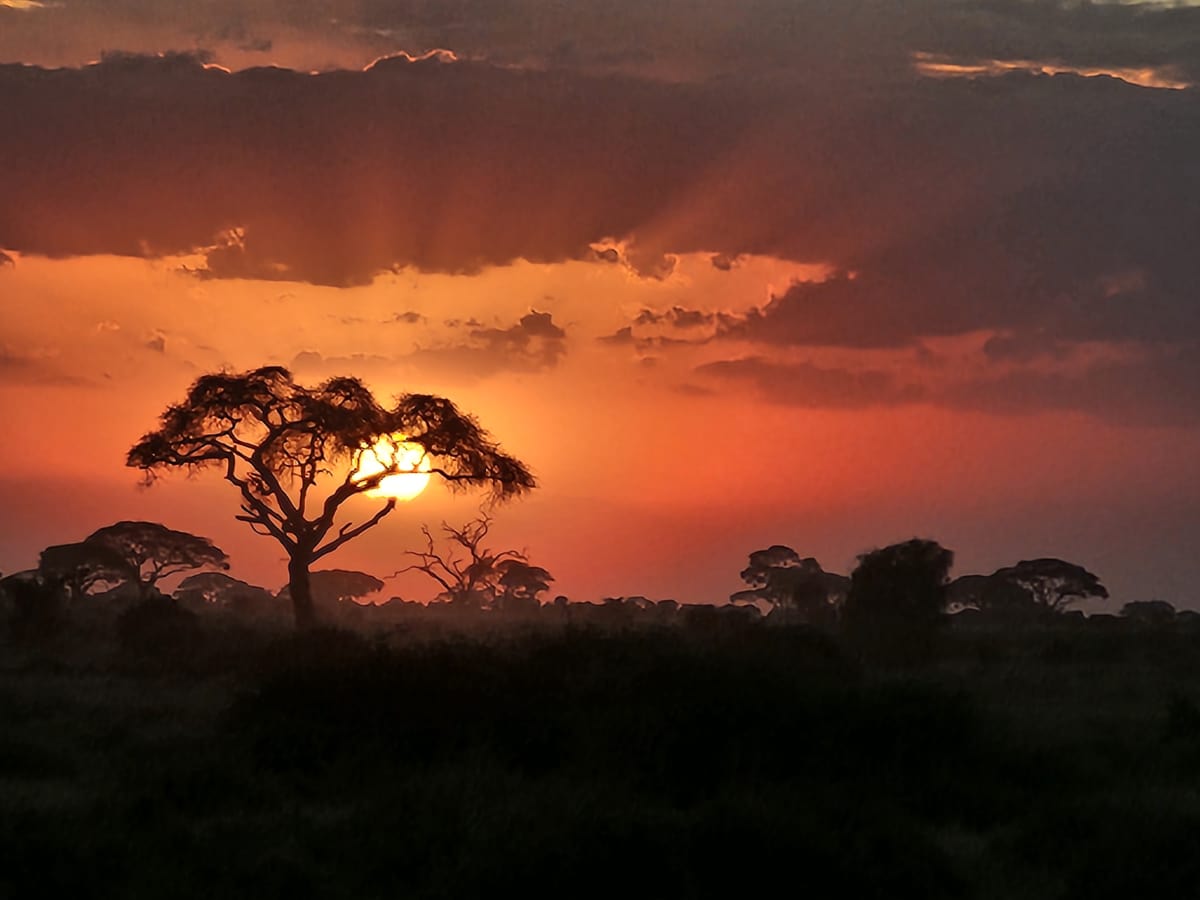
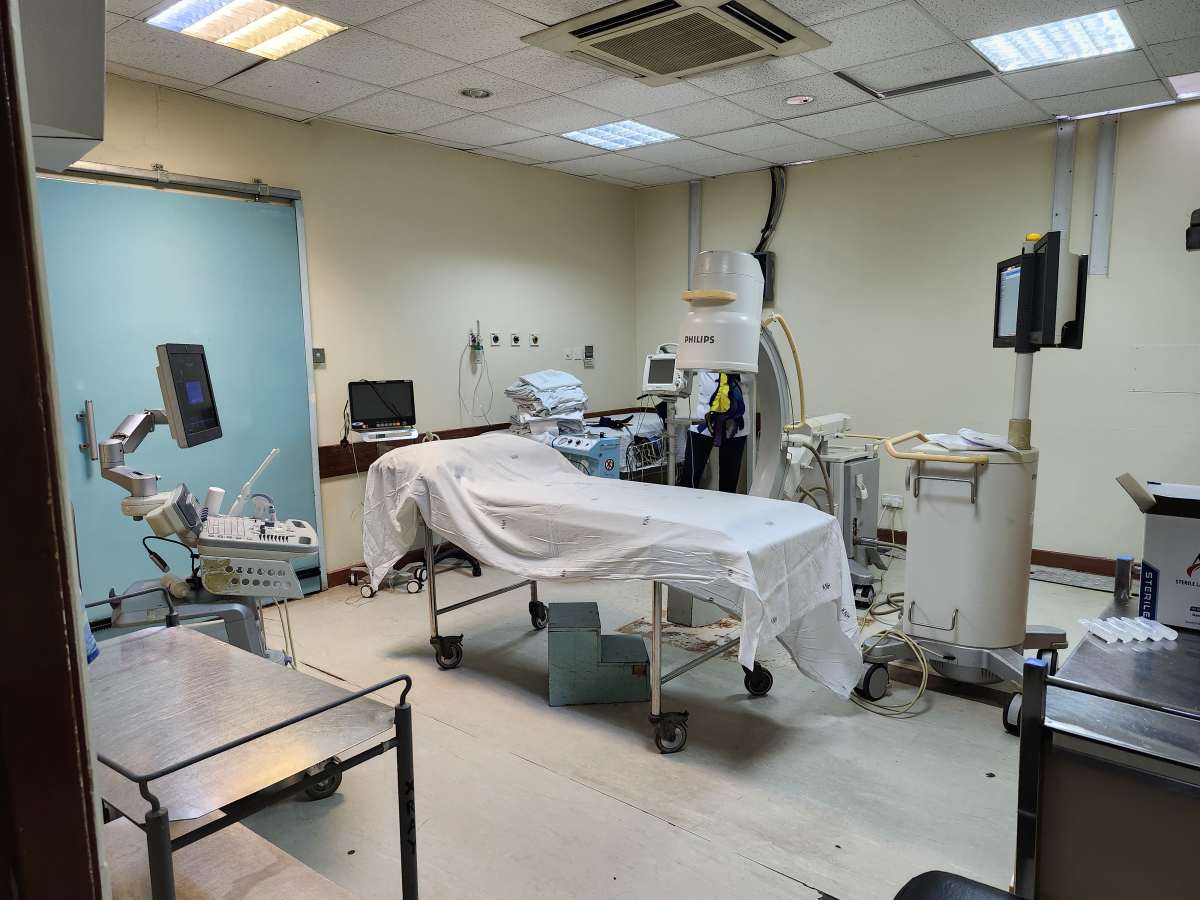
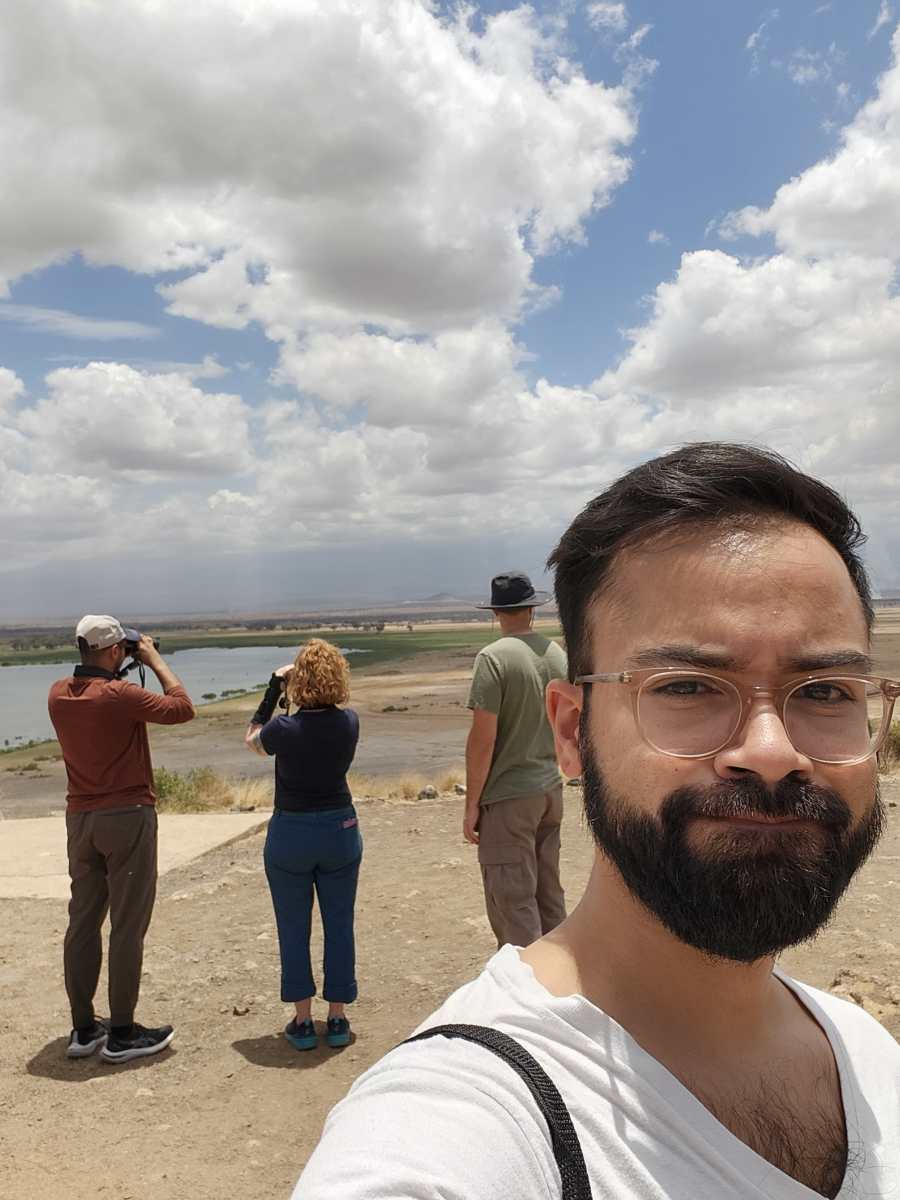


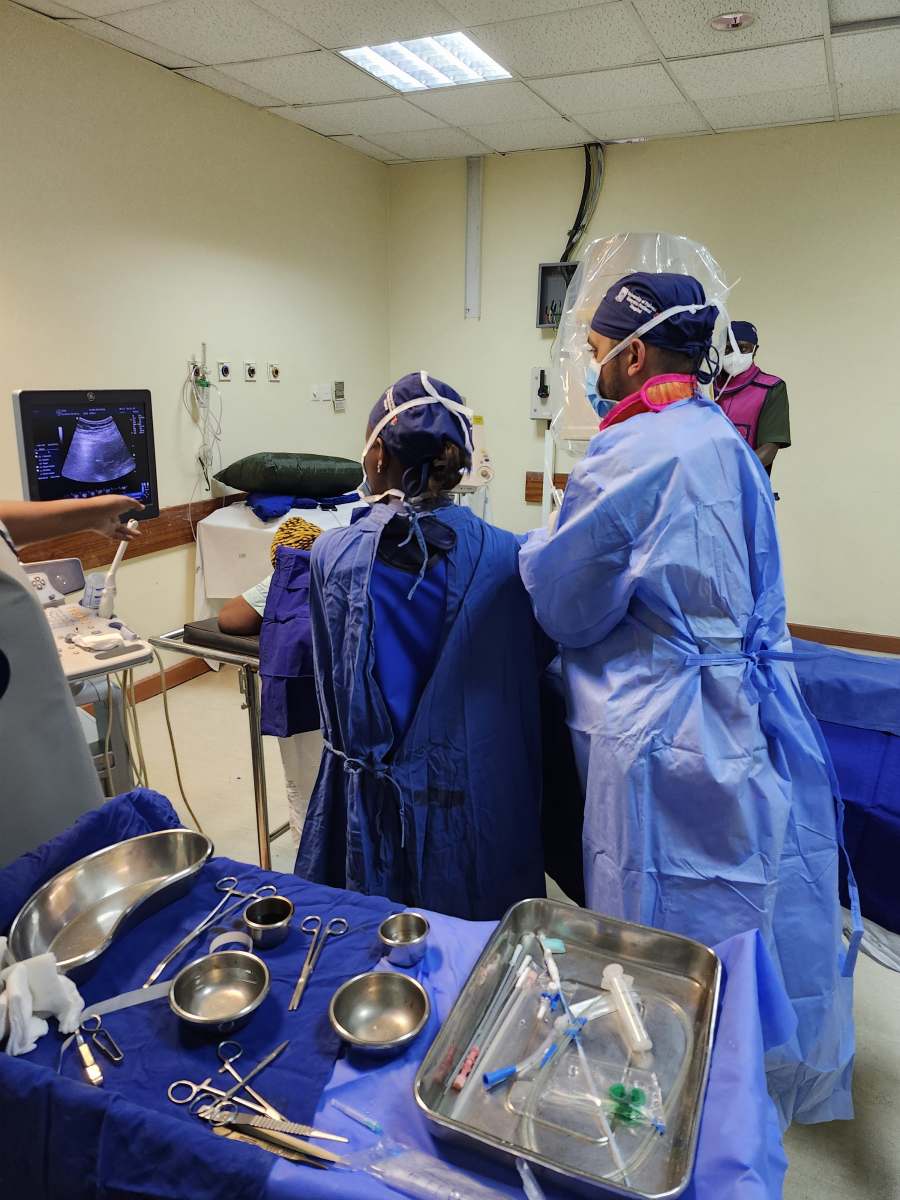
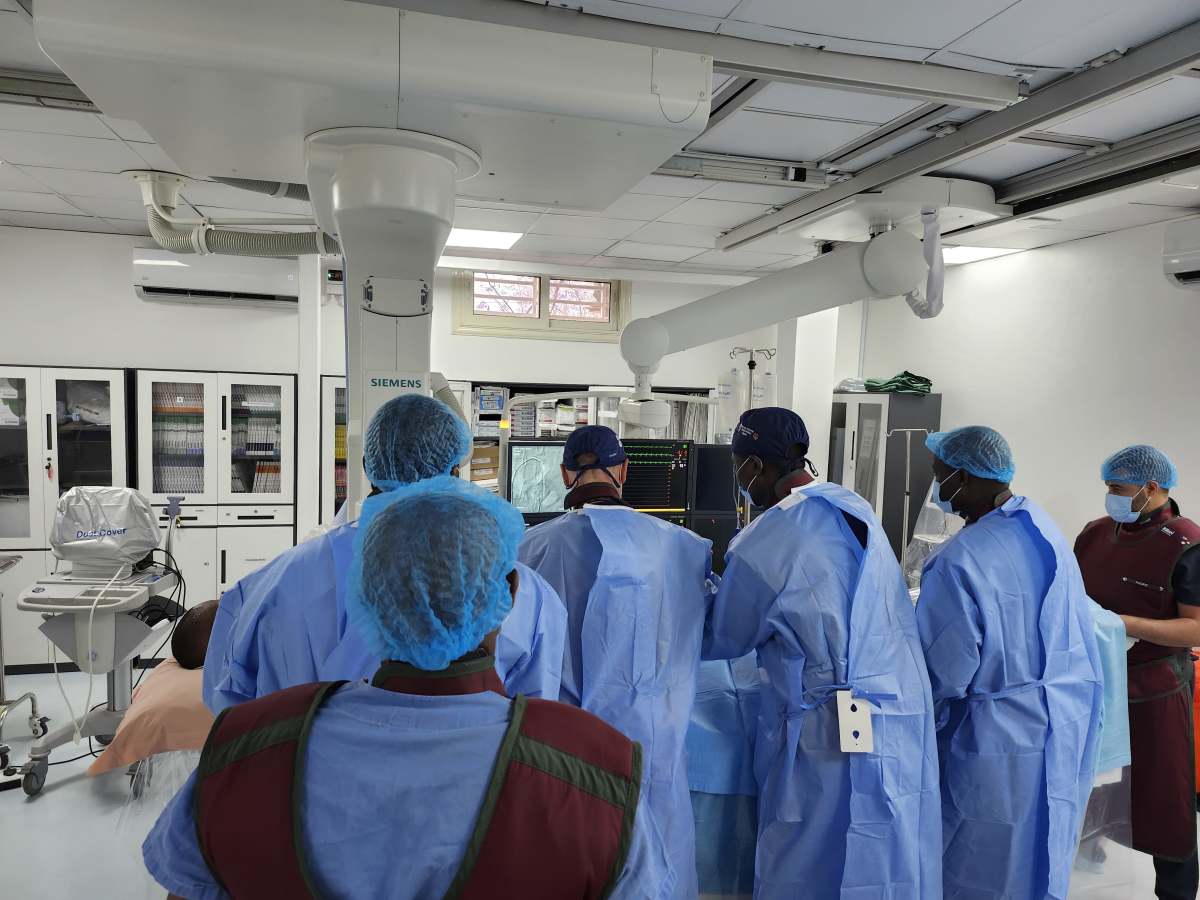
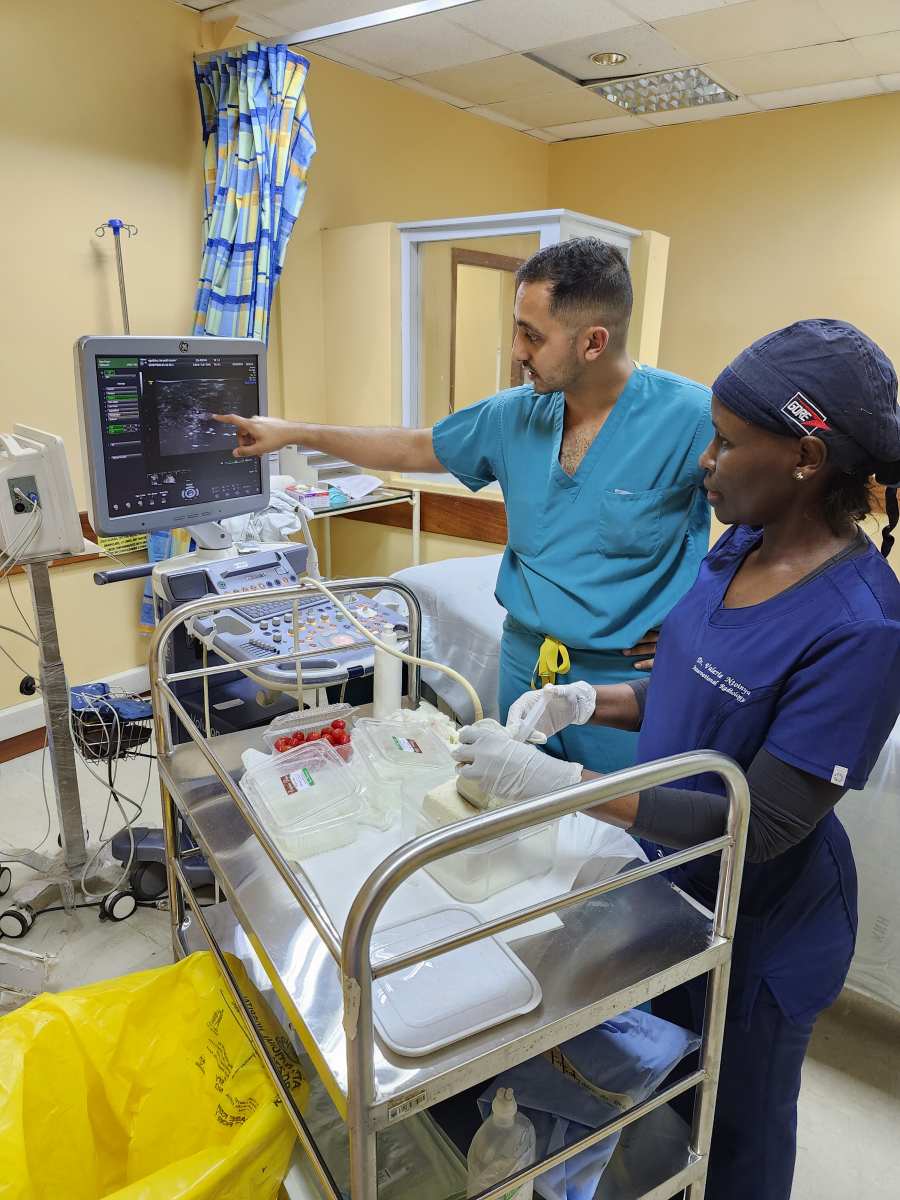




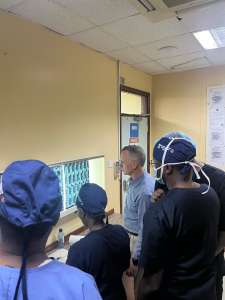



Most of the pictures focus on the doctors we met and worked with during our trip--people who consistently display resilience, grace, brilliance, inventiveness, and talent in their effort to deliver excellent, evidence-based care to their patients. While we can't show their pictures, the patients were there and present every day and had their lives improved by the tireless work from the IR group at the Kenyatta National Hospital. And finally and definitely least importantly, we were certainly impacted by the trip. The experience of navigating a new healthcare system with few resources was an eye-opening, fulfilling, exciting, and challenging one. Can't wait to come back and continue the hard work.